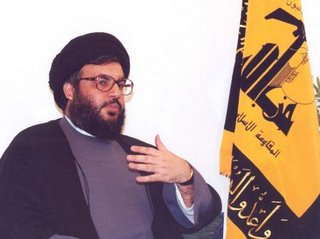Israelis see Hezbollah chief more credible than own in war

A recent study showed that in the war time the Israelis preferred to believe reports of Hezbollah leader Hassan Nasrallah rather than those of their own spokesperson, the Yedioth Ahronoth daily reported on Sunday.
The study, carried out by Uri Lebel of the Ben Gurion Institute of Beer Sheva University, found that there was problem for Israel's public relation.
During a latest poll entitled "the management of Israeli PR during the second Lebanon war," six groups of people were asked to watch video recordings of Israeli PR and that of abroad, and to answer questions.
The result showed that Israeli PR was so lacking that the public had to rely on reports of Hezbollah leader Hassan Nasrallah.
The participants were asked about who gave a sense of certainty regarding the continuance of the war and who was most authentic. As a result, the Israeli public chose Nasrallah's speeches as giving it both.
Asked about Nasrallah's authenticity compared to that of Israeli spokespeople, not one Hebrew spokesperson received high authenticity marks.
"We reached a really crazy situation," Lebel said. "Instead that the Israeli public watched our national spokesman who tells it what is happening every day, who will minimize the chaos and who will be seen as believable, something unprecedented happened: The public perceived the enemy leader against whom we fought a shaving those characteristics, and waited impatiently for his speeches."
"Nasrallah contradicted the Israeli spokespeople more than once, many times contradicting the minister of defense, he was the first to announce the deaths of Israeli soldiers and the sad circumstances which led to them," Lebel said.
Lebel believed that the figures indicate a serious crisis of the leadership down the road, saying that the public "won't follow the leadership to the next confrontation."
Since the end of a conflict with Hezbollah in mid-August, the Israeli public has fiercely criticized the government and military establishments for their miscalculations in the month-long blood shed and demanded an inquiry.

0 Comments:
Post a Comment
<< Home